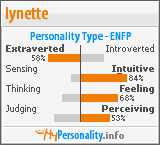Mozart: Piano Concerto 23 in A-major K. 488, Adagio
>> Tuesday, October 27, 2009
I chose this piece because of it's melancholy, almost mournful feel, and the fact that it was composed and performed around the time that Le Nozze di Figaro was being rehearsed, just before it's May 1, 1786 premiere. Being that today is the 244th anniversary of Nancy Storace's (the original Susanna in Figaro), birth, I like to think that perhaps Mozart was longing for her, when he composed this.
The Piano Concerto No. 23 in A major (K. 488) is a musical composition written by Wolfgang Amadeus Mozart. It was finished, according to Mozart's own catalogue, on March 2, 1786, around the time of the premiere of his opera, The Marriage of Figaro. It was one of three subscription concerts given that spring and was probably played by Mozart himself at one of these. The concerto is scored for flute, two clarinets, two bassoons, two horns and strings.
It has three movements: 1. Allegro in A major and common time
2. Adagio in F-sharp minor and 6/8 time
3. Allegro assai in A and crossed common time.
The second movement, in ternary form, is impassioned and somewhat operatic in tone. The piano begins alone with a theme characterized by unusually wide leaps. This is the only movement by Mozart in F sharp minor.
The Piano Concerto No. 23 in A major (K. 488) is a musical composition written by Wolfgang Amadeus Mozart. It was finished, according to Mozart's own catalogue, on March 2, 1786, around the time of the premiere of his opera, The Marriage of Figaro. It was one of three subscription concerts given that spring and was probably played by Mozart himself at one of these. The concerto is scored for flute, two clarinets, two bassoons, two horns and strings.
It has three movements: 1. Allegro in A major and common time
2. Adagio in F-sharp minor and 6/8 time
3. Allegro assai in A and crossed common time.
The second movement, in ternary form, is impassioned and somewhat operatic in tone. The piano begins alone with a theme characterized by unusually wide leaps. This is the only movement by Mozart in F sharp minor.





























3 comments:
I love this movement of this concerto. Although it's cast in a minor key, it always felt more reflective to me, than melancholy. But whatever the affect, it's a beautiful piece of music.
I can play the second movement of this concerto.Bet you can too!
Rallentanda,
I am an excellent singer, and although I can play the piano, and probably would be able to play this particular movement, I am not by any means a pianist. There is a huge difference between being able to play something and being able to play it well. :)
Post a Comment